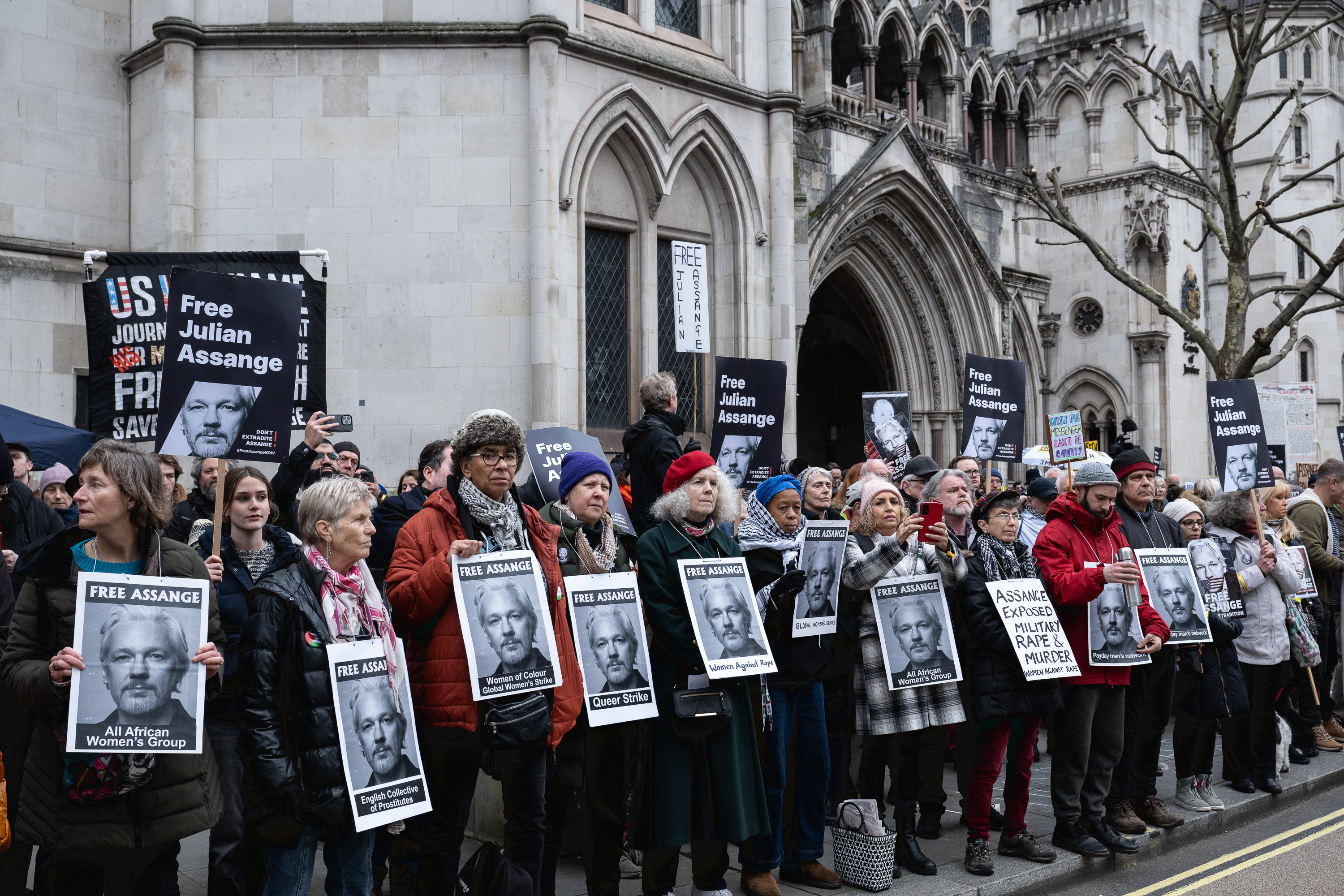Assange Court Report: February 20 - morning

Espionage Act charges are “quintessentially political,” Assange defence argues
Hundreds of protesters showing support to Julian Assange assembled this morning outside London’s Royal Courts of Justice, for what could be the WikiLeaks publisher’s final opportunity to put his arguments against extradition in a UK courtroom. Assange is facing an unprecedented US prosecution under the 1917 Espionage Act centering on WikiLeaks’ publications in 2010-2012.
This week’s two-day hearing is taking place to request permission for an appeal against points rejected at Westminster Magistrates Court in January 2021 as well as the extradition order signed in June 2022 by former UK Home Secretary Priti Patel. These matters, set to one side at a relatively early stage in these extradition proceedings, include some of the most critical issues raised by the US prosecution, including whether the US prosecution is politically motivated and the likely impact on media freedom.
Assange was reported to be ill and unable to attend in person or via video link today’s hearing, where his legal team are asking two High Court judges – Dame Victoria Sharp and the Hon Mr Justice Jeremy Johnson KC – to grant a new appeal hearing.
Barrister Edward Fitzgerald KC focused on the argument that extradition would be politically motivated and supplied examples of cases related to espionage where extraditions were denied because the charges associated to it were assessed to be Espionage, he told the Court, is “quintessentially a political offence” and extradition on these grounds is prohiited under Article 4(1) of the UK-US Extradition Treaty of 2003. Granting extradition in these circumstances would be “an abuse of process”, he said. “It’s a big step to say this centuries old protection, incorporated in every UK-US extradition treaty, has been superseded, silently”
Fitzgerald highlighted statements made by US politicans and government officals, arguing that these demonstrate Suggesting that the extradition is politically motivated, reminding the court that “Mike Pompeo defined WikiLeaks as a hostile, non-state intelligence agency.” He suggested the District Judge could not reasonably have concluded that describing Wikileaks in such way had no particular relevance.
Mark Summers KC, another member of Assange’s defence team, then made the argument that the WikiLeaks disclosures exposed state-level criminality, itself a political act. There was no question that the publications had revealed crimes of the highest level of importance and that they had, in some respects, produced changes in the situations concerned. Evidence provided to the District Court by figures like Daniel Ellsberg and Noam Chomsky amply showed that Mr Assange had a distinct political philosophy.
He went on to explain that this position was one that the Government of the United States was hostile to, refering to documented interference in attempts to secure accountability for torture initiated by other countries, including Poland and Spain, and opposition to investigations by the International Criminal Court in the Hague. This, he argued, helped account for the “substantial malevolence” behind the prosecution, which could only be understood as a form of retaliation.
This, said Summers, reached extraordinary lengths, with attacks on Assange dicussed at the highest level of the US Government. “Donald Trump himself requested to be provided with options on how to do it”, he said.
The court rose for lunch at 2 PM in the afternoon.
The case continues.